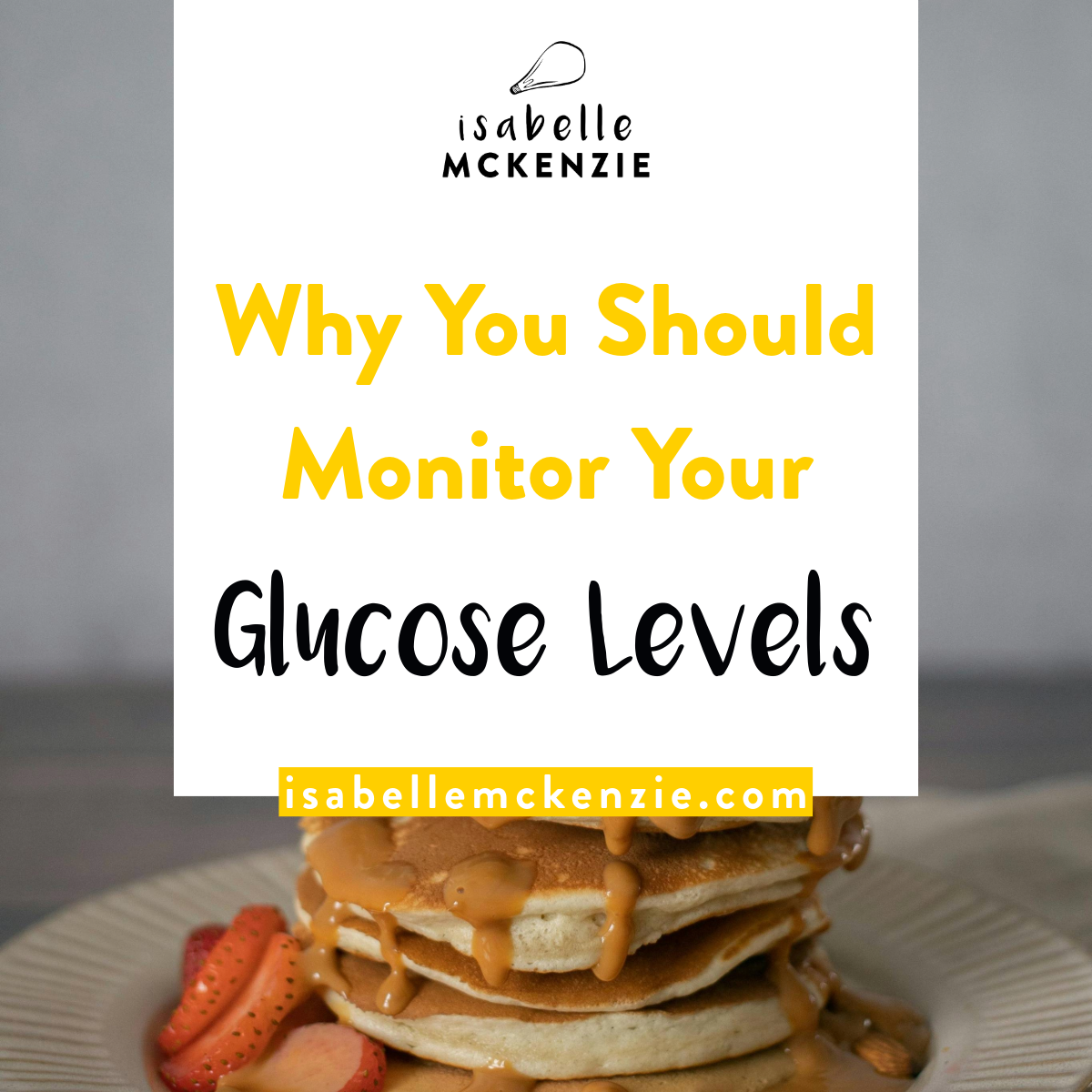Why Do I Crave Chocolate? That Sweet Craving Could Mean A Magnesium Deficiency
#SugarBalancedLiving
Struggling with sweet sugar cravings? Well, that could be a sign that you’re lacking in some important minerals! Find out how a magnesium deficiency could be causing your chocolate cravings as well as how to boost magnesium in your diet naturally!
According to many health experts, food cravings are often an indicator of nutritional deficiencies and around 75% of Americans are deficient in a mineral that controls sugar cravings especially chocolate cravings. Having a healthy balance of magnesium in your diet can not only decrease the number of sweet cravings you have, but also help improve sleep, digestion, and immune health.
Could a magnesium deficiency be behind your endless chocolate cravings?!
Well... yes, high amounts of chocolate cravings are a sign of magnesium deficiency.
Magnesium regulates glucose (blood sugar) and insulin levels (helps the body use and store glucose), as well as the neurotransmitter dopamine. A deficiency will cause intense sugar cravings, especially for chocolate, because cacao is considered the food with the highest amount of magnesium per gram. With that fact stated, it's no wonder, chocolate is the first thing we reach for when we encounter such a deficiency.
If science isn't enough, I personally can actually attest to magnesium‘s craving curbing powers. A couple of years ago, after a couple of months of going through what seemed at the time a random burst of chocoholic cravings for everything chocolatey from Kit Kats to plain ol' Hershey's chocolate bars, I heard about chocolate cravings being a sign of magnesium cravings so I started to supplement with magnesium and that actually helped reduce my chocolate obsession.
While estimations predict that only 2% of Americans have experienced magnesium deficiency, a new study suggests that up to 75% are not meeting their recommended intake and deficiency may be underdiagnosed since the obvious signs commonly don’t appear until your levels become severely low. This means you could be experiencing a minor magnesium deficiency without any obvious indicators.
Furthermore, research says that "magnesium depletion has been found in 75% and 30.8% of patients with poorly controlled type 2 diabetes based on serum and intracellular magnesium status, respectively. Magnesium deficiency can be present despite normal serum magnesium levels".
Magnesium deficiency is widespread yet undiagnosed around the world - we're simply not getting enough of it through diet alone.
New research published in Open Heart discusses this essential nutrient, how deficiency is negatively impacting health across the globe, and calls the situation "a public health crisis". They said this:
"Subclinical magnesium deficiency increases the risk of numerous types of cardiovascular disease, costs nations around the world an incalculable amount of healthcare costs and suffering, and should be considered a public health crisis."
You see, adequate magnesium doesn't just keep your chocoholic tendencies at bay—it also plays a critical role in overall well-being.
Magnesium is one of the most abundant minerals in our bodies. As a nutrient, magnesium is necessary for the function of more than 300 enzymes in the human body and is used in hundreds of different chemical reactions in the body every single day. That means this very crucial nutrient is constantly in high demand and if you aren’t taking in enough there will be some warning signs popping up.
A severe lack of magnesium can be so dangerous that chronically low levels could increase your chances of having high blood pressure, heart disease, type 2 diabetes, and osteoporosis.
So, if you don’t have enough magnesium, not only are you bound to see a difference in your sweet tooth but also in your body overall.
The Role of Magnesium in the Body
Magnesium has many uses in the body and is the second most abundant element inside human cells and the fourth most abundant positively charged ion in the human body.
Like I mentioned earlier, magnesium is a cofactor in more than 300 enzyme systems that regulate diverse biochemical reactions in the body, including protein synthesis, muscle and nerve function, blood glucose control, and blood pressure regulation. Magnesium is required for energy production, oxidative phosphorylation, and glycolysis.
Let's go over just a few of the many uses and the importance of magnesium:
Magnesium is often referred to as the “relaxation mineral” due to its ability to lower stress levels. Studies have even suggested that a balanced magnesium intake may reduce anxiety, ease stress and minimize the response to fear.
As we discussed earlier, magnesium is used in the regulation of glucose, insulin, and the neurotransmitter dopamine. That's why a deficiency can manifest in the form of intense sugar cravings, especially for chocolate (which is high in magnesium).
Magnesium helps maintain healthy brain development, memory, and learning by relaying signals between our body and our brain. It prevents nerve cells from being overstimulated, which can result in brain damage.
Since magnesium plays a role in muscle contraction, research suggests that magnesium can relieve muscle cramps. Thus magnesium supplements are often recommended to prevent cramps.
A lack of magnesium may also contribute to headaches and migraines. Some people use magnesium to treat and prevent migraine symptoms.
Why Do So Many People Have Magnesium Deficiency?
Around 75% of Americans aren't getting the recommended daily 320 mg/day (for women) or 420 mg/day (for men) of magnesium. Why is this number so high even in western countries in the 21 century? Well, research suggests that magnesium consumption from dietary sources has decreased in the past few decades, due to industrialized agriculture and changes in dietary habits.
Most people don't consume enough vegetables, especially dark leafy greens (which are some of the best sources of magnesium) and many of us instead consume too many processed and refined grains, which are stripped of minerals and nutrients.
To make matters worse, industrial agricultural and water purification practices deplete our soil and water of naturally occurring magnesium.
How Much Magnesium Should We Consume?
With a magnesium deficiency (aka hypomagnesemia) leading to various health conditions like muscle twitches and cramps, osteoporosis, fatigue, and high blood pressure, it's clear that getting enough magnesium is crucial for vibrant well-being. However, too much magnesium can still very much be a bad thing, causing various symptoms, including diarrhea, nausea, vomiting, lethargy, and irregular heartbeat.
Luckily, too much magnesium from foods isn't usually a concern for healthy adults. High doses of magnesium from supplements or medications are where problems can start to occur.
The recommended daily allowance of magnesium for adults is 420 milligrams for men and 320 milligrams for women.
How To Get Enough Magnesium?
If you think your sugar cravings might be a sign that you have low levels of magnesium – don't worry there are plenty of healthy food choices that let you load up on the mineral.
While magnesium may not be a miracle cure for every ache, pain, and ailment, getting your daily quota does help ensure that your body has what it needs to function optimally.
Fortunately, there are plenty of magnesium-rich natural foods you can add to your diet:
Foods that are high in fiber are always good sources of magnesium, especially dark leafy vegetables such as kale, spinach, Swiss chard, and seaweed.
Those chocolate cravings may be a bad thing for your health, but the cacao in chocolate when pure is a rich source of magnesium, and that means you can get the unsweetened cacao powder—and for example: throw a little into your next smoothie or coffee for a magnesium hit. Other good sources of magnesium include broccoli, squash, nuts, legumes (especially edamame), and seeds. Seeds are an especially amazing source, with just an ounce of pumpkin seeds having 168 milligrams of magnesium.
Magnesium can also be absorbed through the skin. So, another way to get a dose of magnesium is to soak in a tub with Epsom salts, which can increase your magnesium level because Epsom salt is high in magnesium sulfate.
Should You Supplement Magnesium?
You can certainly get enough magnesium through diet alone and acquiring nutrients from whole food sources is always preferable, but supplements can be helpful for people with diagnosed deficiencies, certain medical issues, or people who don't think they can get enough magnesium through food alone.
Magnesium supplements are likely safe for most adults when taken in low doses (100-300 mg/day). Magnesium glycinate is the most recommended magnesium supplement.
Personally, I like to take a relaxing magnesium supplement when I feel depleted of magnesium. I use Natural Vitality® Natural Calm Raspberry and Lemon. I love the flavor and I find that it keeps me level, more relaxed, and gives me that hit when I feel low in magnesium.
Of course, some of you may not need to get magnesium from any other source than food, as excessive use of magnesium supplements can be toxic - so, do be sure to consult your doctor!
That's It For Today Folks!
Magnesium is an essential mineral that most of us aren't consuming enough of. The occasional sweet craving is a normal thing but if you're consistently getting sugar cravings this can mean that your body is looking for something, like magnesium. Especially since magnesium is so widely used in the body and the average western diet is so deficient in natural magnesium food sources. Your body is a complex system and these cravings could be a warning sign.
Not sure whether or not you're body is low in magnesium or not?... then I recommend getting a blood test that tests your magnesium levels.
If you don't think that low levels of magnesium are behind your cravings or if your sugar cravings are severe and endless sometimes even leading to a binge eating cycle... then this could be a sign that you're suffering from junk food addiction.
So here’s the thing: sugar and junk foods are seriously addictive. Like more addictive than cocaine addictive.
Sugar and junk foods like cookies, ice cream, donuts, white bread, and chips are addictive in the same way that heroin or cocaine is addictive.
"David Ludwig and his colleagues at Harvard conducted a study that showed that foods that raise blood sugar even more than table sugar such as white flour, white potatoes, and refined starch, have a high glycemic index, and trigger a region in the brain “nucleus accumbens” which is the area in the brain that is ground zero for a drug abuse addiction."
Basically, foods that spike your blood sugar are addictive and it’s wayyyy easier to get a hold of than said drugs, being as it’s legal and found in 90% of food items in an average grocery store.
Yes... this is serious... I know you're probably thinking to yourself: “am I addicted to sugar”? Well, trust me, you’re not alone, and that’s why I’ve put together: a list of 8 signs to help you find out whether or not those cravings are in fact sugar addiction, as well as a free download to help you crush those cravings.
There are ways to help you break your food addiction and stop these cravings - for good.
When my health was at its worst, I started researching sugar and how to reduce it in my diet, but no matter how hard I searched I couldn’t find anything that could really help. Out of desperation, I set about developing my own system that would help me heal myself and my sugar addiction.
This is why I know and care so much about this issue.
Don’t just keep asking yourself: why am I craving sugar? Take action.
I'm here to help… get started by checking out my sugar reduction tips in my post: When You Should Stop Eating Sugar + How to Do It.
Plus, to give you some extra help, I’ve put together some really useful and easy hacks on cutting back sugar for good.
Check out my FREE ‘Ultimate Guide to Crushing Your Sugar Cravings’ Downloadable Guide.
Get started on effortlessly breaking your sugar reliance/addiction for good with help + support. AND, most importantly, while maintaining a healthy balance between your mind and your body - because low-sugar living shouldn’t feel like deprivation.














… yup, the Isabelle behind the IsabelleMcKenzie.com!
Instagram: @ItsIsabelleM | Pinterest: @ItsIsabelleM | Subscribe on Youtube
I’m dedicated to helping teach people how to live their happiest, healthiest life and reach their goals so that they can create the lifestyle of their dreams with integrity & purpose.
I focus on self-care, mind, body and health, dedicated to helping teach peeps how to live their happiest, healthiest life and reach their goals so that they can create the life that will have them jumping out of their bed in the morning to actually live!
Read More >